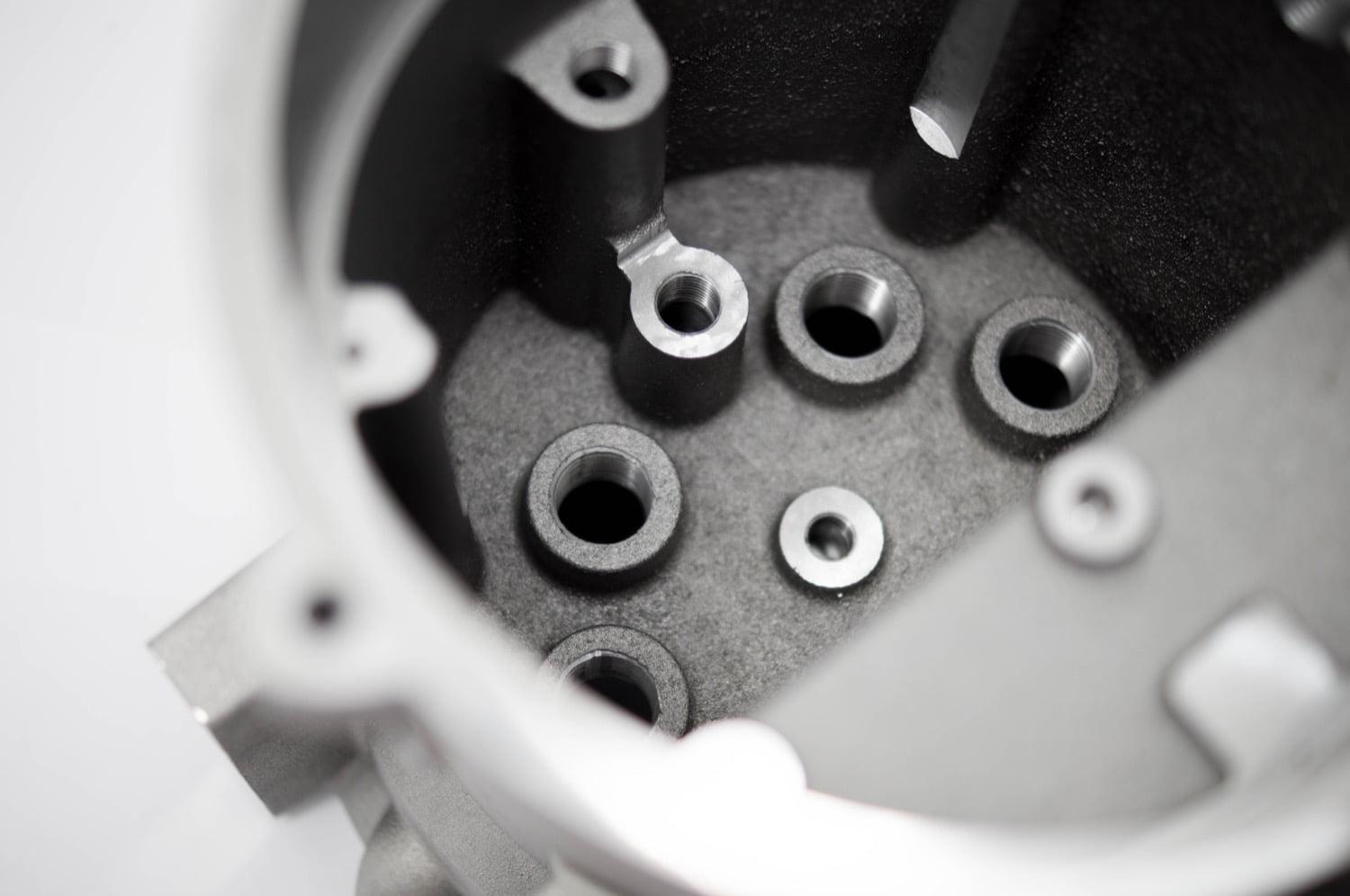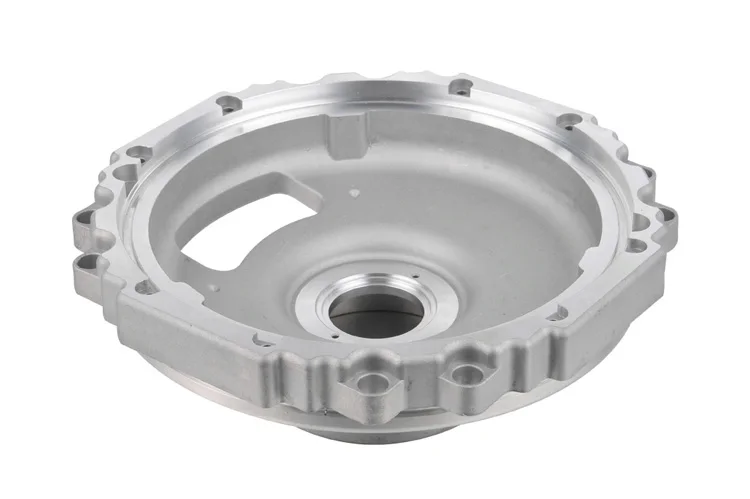Exactly How Light Weight Aluminum Foundries Add To Different Industries: A Comprehensive Summary
Light weight aluminum foundries offer as important suppliers throughout several sectors, including auto, aerospace, building, and electronic devices. They create elements that are not just lightweight yet also durable, improving the efficiency of various products. With innovative casting methods and a commitment to sustainability, these foundries are adapting to fulfill evolving market needs. As they innovate, the effect of light weight aluminum spreadings on different applications elevates vital questions regarding the future of manufacturing. What lies in advance for this essential industry?
The Role of Aluminum Foundries in the Automotive Sector
As the automotive market significantly embraces lightweight materials to enhance fuel effectiveness and performance, light weight aluminum foundries play a vital role in this evolution. These centers specialize in the manufacturing of aluminum spreadings, which are important parts in modern automobiles. By providing high-strength, lightweight parts, light weight aluminum foundries make it possible for makers to lower the total weight of lorries, inevitably causing improved fuel economic situation and reduced emissions.
Light weight aluminum's resistance to corrosion further improves automobile durability, making it an attractive option for automakers. Foundries make use of innovative methods such as die casting and sand spreading to develop exact and elaborate parts, guaranteeing that they fulfill rigid market standards. Additionally, the ability to reuse light weight aluminum effectively adds to a more lasting manufacturing process. As the vehicle industry remains to innovate, aluminum shops will continue to be essential in delivering the materials essential for the future generation of cars, supporting both performance and ecological goals.

Aerospace Applications of Aluminum Castings
Aluminum castings are indispensable to the aerospace market, using a mix of lightweight toughness and toughness that is essential for airplane performance. These spreadings are made use of in various parts, such as engine components, structural frameworks, and touchdown equipment, where weight decrease is critical for fuel effectiveness and total safety. The flexibility of aluminum permits for complicated geometries that improve wind resistant effectiveness while keeping structural integrity.
Developments in casting innovations have improved the precision and surface area finish of aluminum parts, reducing the demand for considerable post-processing. This performance not just increases manufacturing timelines yet likewise reduces costs, making aluminum an appealing choice for manufacturers. The deterioration resistance of aluminum warranties durability and dependability in severe operating environments, further developing its role in aerospace applications. As the sector evolves, light weight aluminum spreadings continue to be a vital material, driving advancement and supporting the growth of next-generation aircraft.
Construction Sector Technologies With Light Weight Aluminum
The building and construction market has actually progressively embraced aluminum because of its lightweight homes and versatility, paralleling its successful applications in aerospace. Innovations in aluminum layout have actually brought about more powerful, a lot more efficient frameworks, enabling builders and designers to check out new possibilities. The material's resistance to corrosion and reduced upkeep needs make it specifically appealing for both commercial and property jobs.
Light weight aluminum's adaptability facilitates the development of complex layouts, allowing for visual improvements that were formerly tough with traditional materials. Prefabrication strategies have actually also developed, using light weight aluminum to reduce building time and expenses substantially. Additionally, the energy efficiency of aluminum systems-- such as window frameworks and roof-- adds to sustainable building practices, lining up with contemporary environmental standards. As the building and construction industry remains to embrace these innovations, light weight aluminum's role is anticipated to broaden, driving more innovation and adding to the growth of resistant frameworks.
Electronic devices and the Need for Lightweight Aluminum Components
With the rapid improvement of technology, the need for lightweight light weight aluminum parts in the electronic devices market has actually risen. As devices end up being much more mobile and compact, manufacturers look for materials that offer both resilience and weight decrease. Aluminum, with its like this exceptional strength-to-weight proportion, has actually emerged as a recommended choice for parts such as coverings, warmth sinks, and architectural assistances.
The use of light weight aluminum not just improves item performance however likewise adds to power effectiveness, as lighter gadgets require much less power during procedure. In addition, light weight aluminum's excellent conductivity makes it suitable for digital applications, guaranteeing effective warmth dissipation and reducing the danger of overheating.
As customer preferences change in the direction of sleek and light-weight gadgets, light weight aluminum foundries play an essential function in meeting the evolving demands of the electronic devices market (Precision aluminum casting). Their capability to create precise and high-quality aluminum components supports development, enabling producers to press the limits of design and performance
Lasting Practices in Aluminum Foundries
As the electronics sector progressively prioritizes sustainability, aluminum factories are adapting their methods to align with these ecological goals. Several shops are carrying out reusing programs that reclaim light weight aluminum scrap, greatly reducing the need for resources and minimizing waste. By making use of energy-efficient modern technologies, these facilities are decreasing their carbon footprint; as an example, employing electrical heating systems rather than typical gas-fired ones can lead to significant energy financial savings.
Additionally, aluminum factories are spending in water preservation actions, such as closed-loop systems that reuse water utilized in cooling down procedures. These methods not just lower water usage yet likewise mitigate the ecological impact my sources related to wastewater discharge. Many shops are discovering eco-friendly energy sources, such as solar and wind power, to meet their energy requires sustainably. Via these efforts, aluminum shops exhibit a commitment to environmental stewardship while continuing to satisfy the needs of the electronics sector.
Future Trends in Light Weight Aluminum Factory Technologies
Emerging technologies are poised to change aluminum shops, improving effectiveness and item top quality while progressing sustainability initiatives. Technologies such as man-made intelligence and artificial intelligence are expected to maximize manufacturing processes by forecasting devices failures and boosting source allotment. The integration of sophisticated robotics will enhance procedures, minimizing labor prices and lessening human error.
Additive manufacturing, or 3D printing, is also acquiring grip, allowing the manufacturing of complex geometries that were formerly unattainable with typical approaches. This shift can result in substantial material financial savings and reduced waste. Furthermore, wise shops utilizing IoT (Web of Points) technologies will certainly make it possible for real-time monitoring and data evaluation, cultivating aggressive decision-making.
Last but not least, the fostering of cleaner melting technologies and recycling techniques will certainly better reduce the environmental footprint of aluminum factories, making them extra sustainable. Collectively, these fads signify a future where light weight aluminum shops can run with better performance and obligation.
Regularly Asked Questions
What Are the Environmental Impacts of Light Weight Aluminum Foundries?

Exactly How Do Foundries Guarantee Quality Assurance in Light Weight Aluminum Spreading?
Shops ensure quality assurance in light weight aluminum casting by implementing rigorous inspection procedures, using advanced technology, carrying out regular product screening, and adhering to sector requirements, thereby keeping consistency and dependability in their finished products. Aluminum Foundry.
What Is the Typical Life Expectancy of Aluminum Cast Parts?
The ordinary life expectancy of aluminum actors components normally ranges from 10 to half a century, relying on elements such as ecological conditions, usage, and maintenance. Proper care can considerably enhance their toughness and efficiency with time.
Just How Are Light Weight Aluminum Alloys Selected for Details Applications?
Light weight aluminum alloys are selected based upon variables such as strength, rust resistance, weight, and visite site thermal conductivity. Designers evaluate the particular demands of applications to determine one of the most ideal alloy for best performance and sturdiness.
What Are the Safety And Security Regulations for Light Weight Aluminum Factory Workers?
Security laws for aluminum foundry workers include individual safety equipment mandates, ventilation demands, exposure limits to dangerous materials, and procedures for taking care of liquified steel. Conformity assurances worker safety and minimizes health and wellness risks connected with shop procedures.
As the automobile industry progressively accepts lightweight products to boost fuel performance and efficiency, light weight aluminum foundries play a crucial function in this development. As customer choices change towards lightweight and sleek devices, aluminum foundries play an important role in fulfilling the advancing needs of the electronic devices sector. As the electronic devices sector progressively prioritizes sustainability, aluminum foundries are adjusting their methods to straighten with these environmental objectives. Numerous shops are executing reusing programs that reclaim light weight aluminum scrap, significantly lowering the need for raw products and lessening waste. Security regulations for aluminum shop workers include individual safety equipment mandates, ventilation needs, exposure limits to harmful materials, and procedures for dealing with liquified metal.